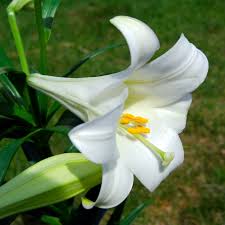记忆方法
将“lily”与“leilie”这个音近词(荷兰语中百合的名称)联系,同时想象一朵百合花(lily)优雅地站立在清新的水边,通过视觉和听觉的双重印象来记忆这个单词。
以上内容由AI生成, 仅供参考和借鉴
中文词源
lily 百合
来自阿拉伯语lilia,百合花。
英语词源
- lily
-
lily: [OE] Lily probably originated in a pre-Indo- European language of the Mediterranean seaboard. Latin acquired it (either independently or via Greek leírion) as līlium, and passed it on to English in the 10th century. It is now common to virtually all western European languages, including German (lilie), Dutch (lelie), Swedish (lilja), Spanish (lirio), Italian (the more radically altered giglio), and French (lis, acquired by English in fleur-de-lis, literally ‘lily flower’ [19]).
- lily (n.)
- Old English lilie, from Latin lilia, plural of lilium "a lily," cognate with Greek leirion, both perhaps borrowed from a corrupted pronunciation of an Egyptian word. Used in Old Testament to translate Hebrew shoshanna and in New Testament to translate Greek krinon. As an adjective, 1530s, "white, pure, lovely;" later "pale, colorless" (1580s).
Also from the Latin word are German lilie, French lis, Spanish lirio, Italian giglio. The lily of the valley translates Latin lilium convallium (Vulgate), a literal rendition of the Hebrew term in Song of Solomon ii:1. It apparently was applied to a particular plant (Convallaria majalis) first by 16c. German herbalists. Lily pad is from 1834, American English.
权威例句
- 1. We sat in Lily's sunroom while I sketched in the situation.
- 我们坐在莉莉的日光浴室里,我把目前形势的细节情况又补充说明了一下。
- 2. Lily lives in a penthouse just off Park Avenue.
- 莉莉住在公园大道附近的一套顶层豪华公寓里。
- 3. I rode to Lily's in a cab.
- 我乘出租车去了莉莉家。
- 4. Lily was in one of her aggressive moods.
- 莉莉当时不依不饶。
- 5. They want me to conform, to be lily-white.
- 他们要我循规蹈矩,要我清白无瑕。

